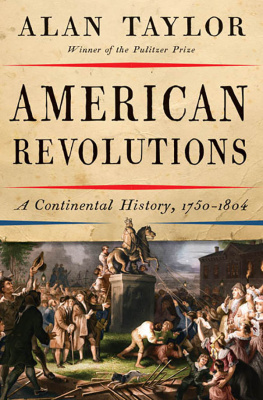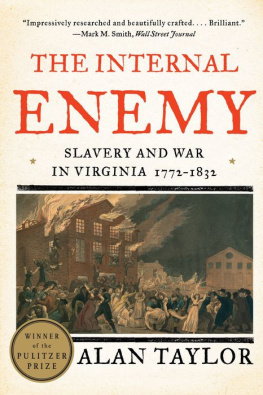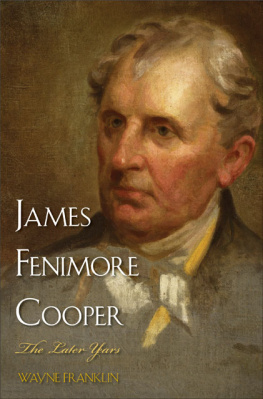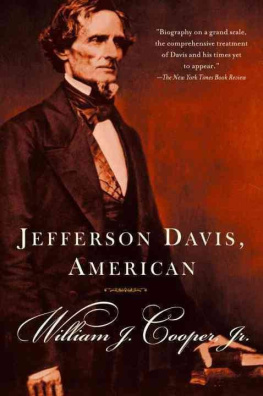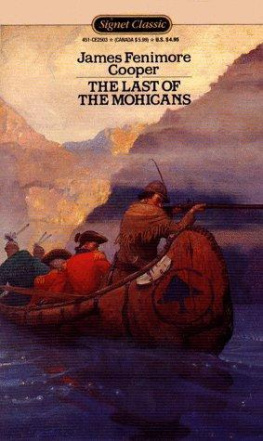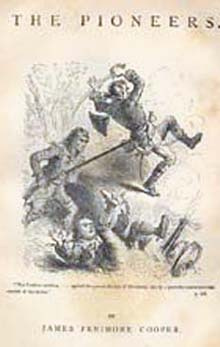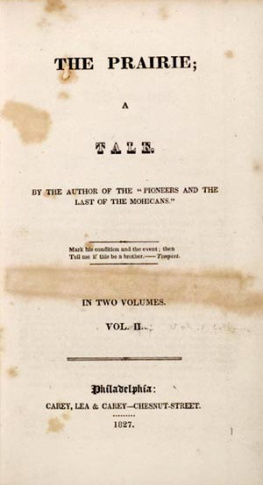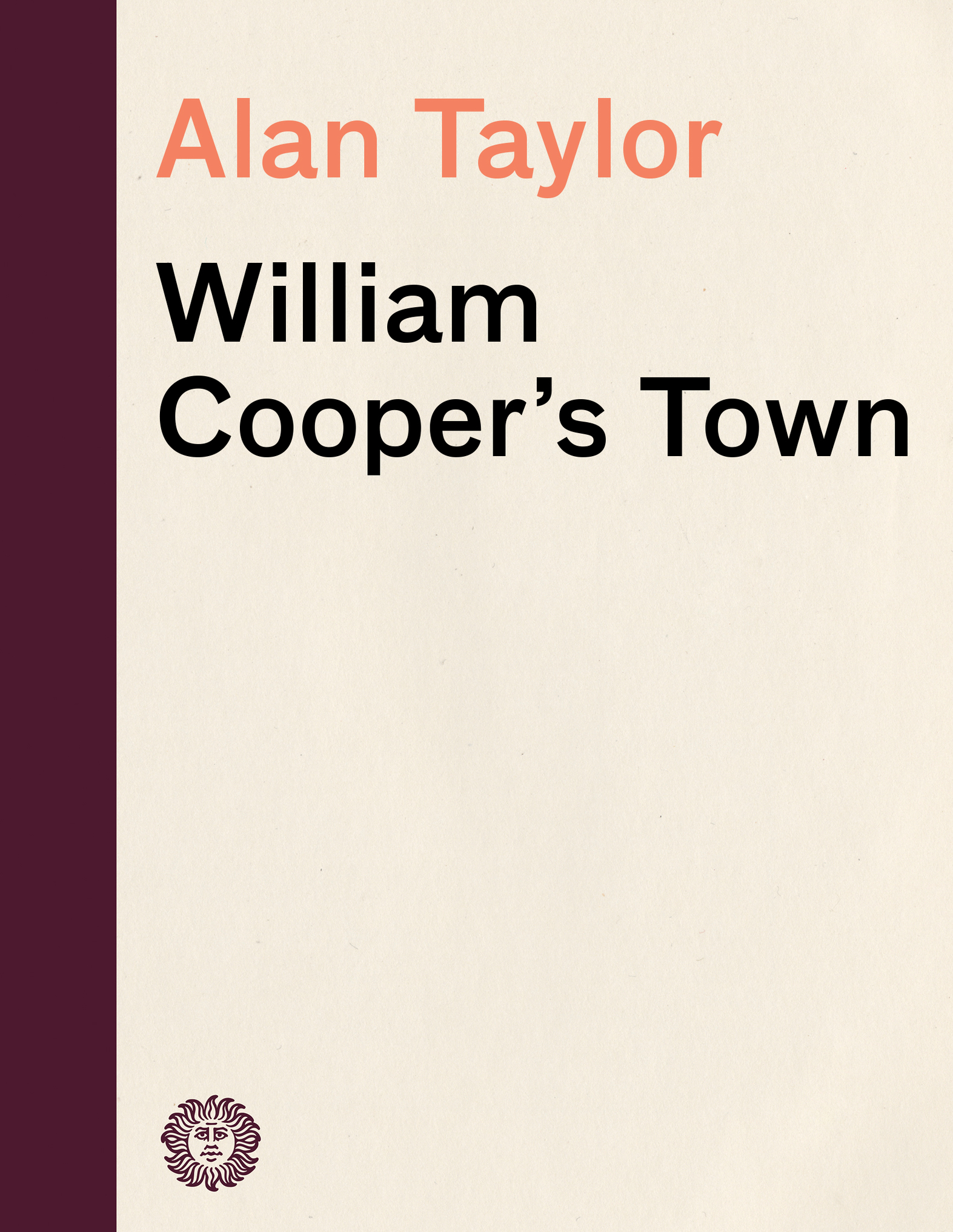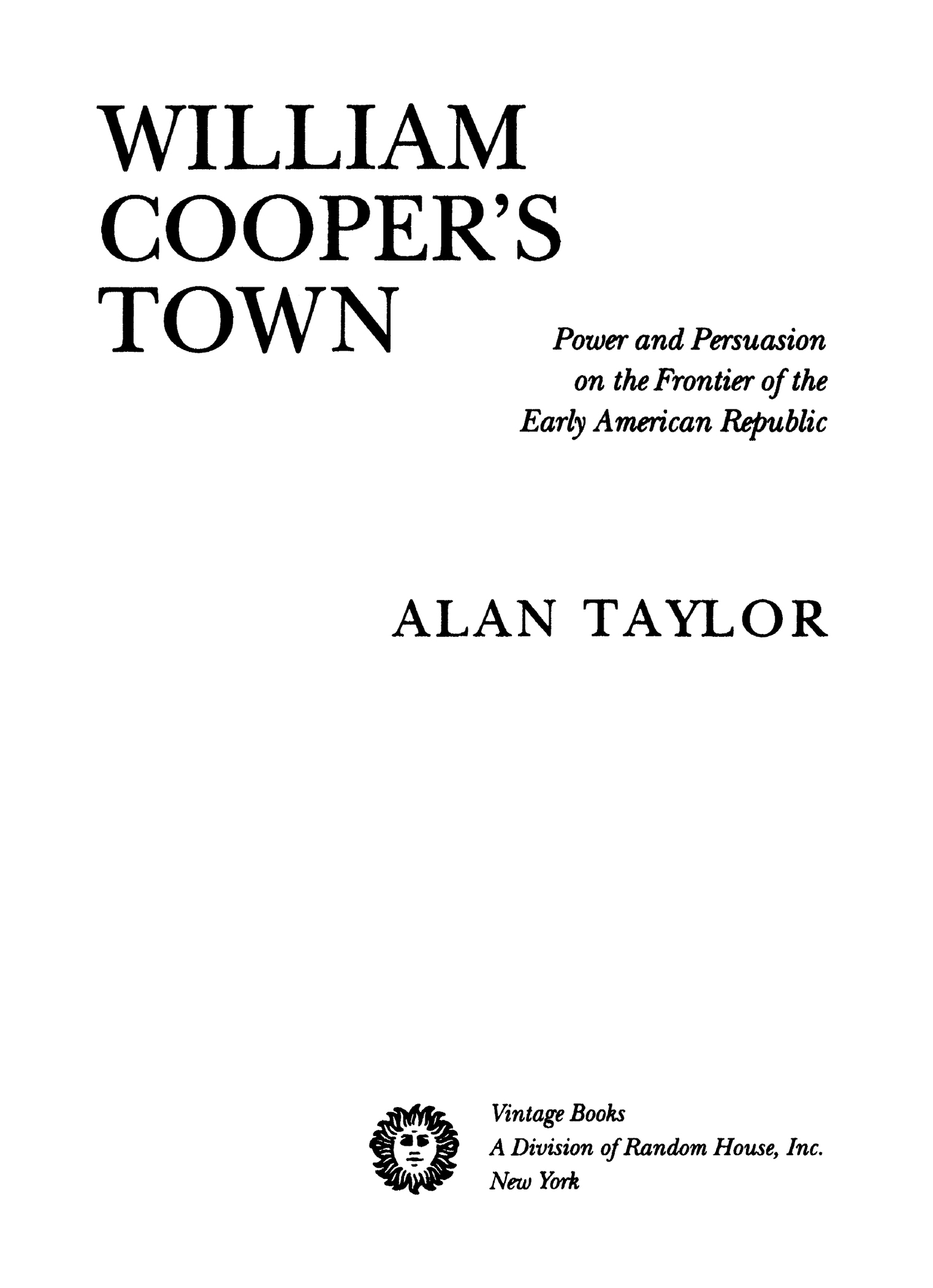Contents
A LAN T AYLOR
William Coopers Town
Born in Portland, Maine, Alan Taylor received his B.A. degree from Colby College in 1977 and his Ph.D. from Brandeis University in 1986. He has taught at Colby College, the College of William and Mary, Boston University, and the University of California at Davis, where he is Professor of History. He has been the recipient of Best Annual Article Prizes from American Quarterly (1986), New York History (1991), and the Journal of the Early Republic (1991), and fellowships from the National Endowment for the Humanities/Institute of Early American History and Culture, NEH/American Antiquarian Society, the National Humanities Center, and the Huntington Library. He is author of Liberty Men and Great Proprietors: The Revolutionary Settlement on the Maine Frontier, 1760-1820. William Coopers Town was the recipient of the Bancroft Prize for American History and the Pulitzer Prize.
ALSO BY ALAN TAYLOR
Liberty Men and Great Proprietors: The Revolutionary Settlement on the Maine Frontier, 17601820 (1990)
F IRST V INTAGE B OOKS E DITION , S EPTEMBER 1996
Copyright 1995 by Alan Taylor
All rights reserved under International and Pan-American Copyright Conventions. Published in the United Sates by Vintage Books, a division of Random House, Inc., New York, and simultaneously in Canada by Random House of Canada Limited, Toronto. Originally published by Alfred A. Knopf, Inc., New York, in 1995.
Grateful acknowledgment is made to the following for permission to reprint previously published material: Harvard University Press: Excerpts from The Letters and Journals of James Fenimore Cooper, vols. I-VI, 19601968, edited by James Franklin Beard. Vols. I and II, copyright 1960 by the President and Fellows of Harvard College. Vols. III and IV, copyright 1964 by the President and Fellows of Harvard College. Vols. V and VI, copyright 1968 by the President and Fellows of Harvard College. Reprinted by permission of Harvard University Press. State University of New York Press: Excerpts from The Pioneers by James Fenimore Cooper. Copyright 1980 by State University of New York. Reprinted by permission of State University of New York Press.
Maps designed by Russell Jones. Used by permission.
The Library of Congress has cataloged the Knopf edition as follows:
Taylor, Alan, [date]
William Coopers town: power and persuasion on the frontier of the early America republic / Alan Taylor.
p. cm.
Includes bibliographical references (p. ) and index.
ISBN 0-394-58054-0
1. Copperstown (N.Y.)History. 2. Cooper, James Fenimore, 1789-1851. Pioneers. I. Title.
F129.C77T38 1995
974.774dc20 95-21748 CIP
Vintage ISBN : 0-679-77300-2
Ebook ISBN9780525566991
Random House Web address: http://www.randomhouse.com/
v5.3.2
a
For Shelley and Peter,
Erik and Evan
and
in memory of
Paul Fenimore Cooper, Jr.
Contents
INTRODUCTION
The enterprise of Judge Temple is taming the very forests! exclaimed Elizabeth, throwing off the covering, and partly rising in the bed. How rapidly is civilization treading on the footsteps of nature! she continued, as her eye glanced over not only the comforts, but the luxuries of her apartment, and her ear again listened to the distant, but often repeated howls from the lake.
James Fenimore Cooper, The Pioneers, 212
T HE DEATH OF J UDGE W ILLIAM Cooper in late 1809 dismayed his friend Miers Fisher, who, on June 13, 1810, wrote a moving letter of tribute addressed to the judges sons. Fisher was a pious Quaker, a former mayor of Philadelphia, and a wealthy lawyer who had become Coopers partner in frontier land speculations. Despite early poverty and limited education, Cooper had risen to become the preeminent landlord, presiding judge, and U.S. congressman of Otsego County, in upstate New York. In 1808 Fisher had visited Cooper at the New York village that he had founded and named for himself: Cooperstown. Impressed by the bustling village and its thriving hinterland, Fisher concluded that his friend had a special genius for developing prosperous and profitable new settlements in the North American forest. In his letter of tribute, Fisher explained:
He was a man to whom my mind bore a most cordial friendship, founded on esteem & of whose Life I wished to know more than a seven years acquaintance afforded, in order that I might write a history of the wonderful dispensations of Providence in enabling a great mind to emerge from Obscurity & to display a benevolent use of Talents more exalted than Bonaparte or any of his predecessors of conquering memory; their ambition laid waste the fruitful fields & turnd the Gardens of Europe & Asia to Desartsthy fathers great mind converted the savage wilds of America to fruitful fields & he lived to see the unborn generations of his first settlers enjoying Peace, Liberty & Safety under their own cultivated Settlements; But I sat down to write a Letter not a History!
To make sense of Judge Cooper, Fisher had to narrate Coopers life as part of the larger history of his time and nation. Coopers remarkable rise from humble origins to riches and influence represented the opportunity, equality, and mobility that became so celebrated in the early American Republic. And as a frontier promoter and landlord, he worked at the heart of the great phenomenon of his place in timethe conquest, resettlement, and transformation of the North American forest.
But William Cooper was a controversial as well as a commanding figure. Many former friends, as well as old rivals, eventually concluded that his cunning at speculation and political intrigue exceeded the bounds of genteel respectability. Even Miers Fisher began to suspect that Cooper had cheated him by secretly hoarding the best lands in one of their joint purchases. Pained by the dawning suspicion, in 1815 he wrote, From the opinion I had entertained of the Integrity of William Cooper, Ishall be very sorry to find myself deceived for I had rather submit to that [deception] than discover a personal advantage to myself in the misconduct of one whom I deemed an honest man & my friend.
William Cooper became rich, powerful, and famous by attaching himself to his nations rapid population growth and territorial expansion at the frontier margins. He benefited from the recent Revolutionary War, which had dispossessed the native inhabitants of New York, the Iroquois tribes. Devastated by American raids in 1779 and abandoned by their British allies in 1783, the Iroquois had to surrender almost all of their homeland. Their domains passed first to land speculators such as William Cooper and then to thousands of settlers whose new farms steadily obliterated the marks of their Indian predecessors. When Miers Fisher insisted that the savage wilds had been converted by Coopers peaceful enterprise, he erased the role of conquest in the settlement of North America. From the Indian perspective Cooper and his settlers were Bonapartes whose ambitions laid waste the fruitful fields of the Iroquois.
Slow to develop as a colony, New York became the most dynamic state in the newly independent American Republic. During the four decades that followed the end of the war in 1783, thousands of Yankees flocked from crowded New England into upstate New York to replace the Iroquois. New Yorks population quadrupled from 340,120 in 1790 to 1,372,812 in 1820. In 1790 New York had been the nations fifth state in population, lagging behind Virginia, Massachusetts, Pennsylvania, and North Carolina. By 1820 New York had become the most populous state in the nationas well as the leader in manufacturing and banking capital and in commercial exports. Most of the Yankees settled in the hills and valleys of northern, central, and western New Yorkdramatically shifting the distribution of the states population; in 1785 three-fourths of New Yorkers still lived in the Hudson valley or along the Atlantic coast; in 1820 three-fourths of the states people lived in the newer counties to the north and west of Albany. The new nations explosive expansion exceeded in pace and extent the experience of any preceding American generation, and New York was the vanguard state of the developing nation. As the aggressive and energetic developer of frontier settlements in central New York, William Cooper played a leading role in that states rapid demographic and commercial expansion.


